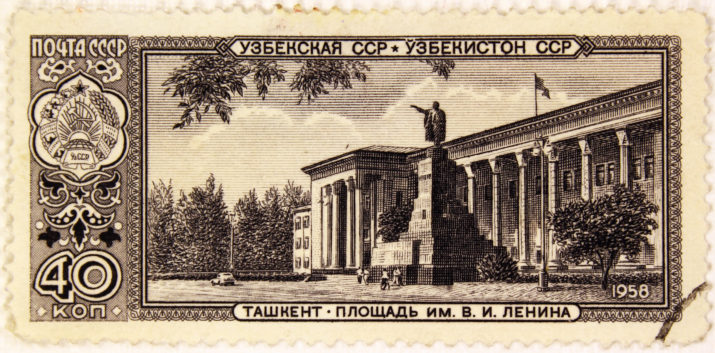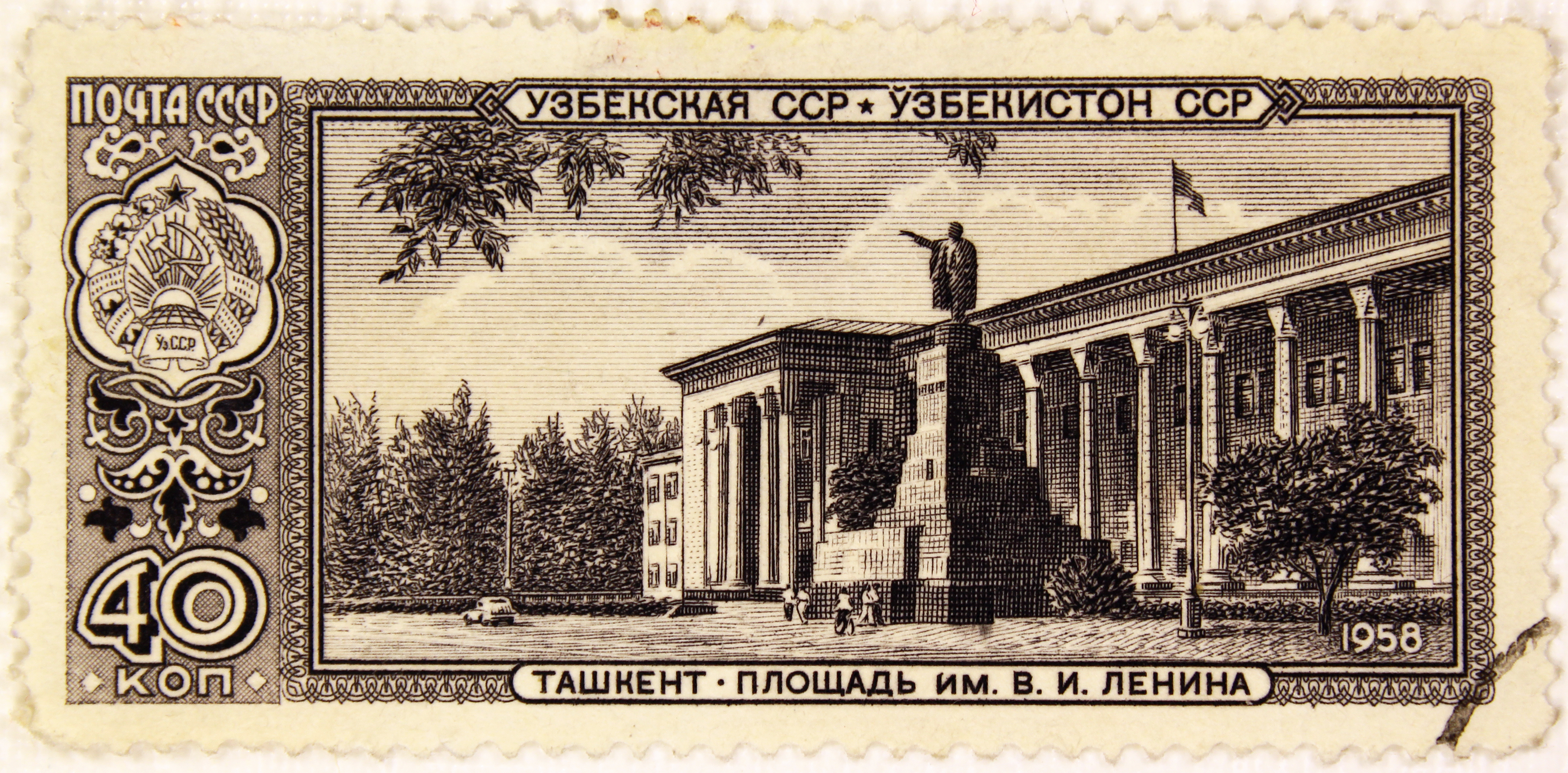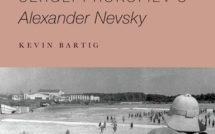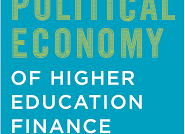

This is part of our Campus Spotlight on the University of Glasgow/Nankai University Joint Graduate School.
Overview
This course aims to present students with an advanced introduction to the politics and international relations of post-Soviet Central Asia – a region that is here defined as the ensemble of the former Soviet republics of Kazakhstan, Kyrgyzstan, Tajikistan, Turkmenistan, and Uzbekistan.
The course offers an excursus into the principal dynamics that influenced Central Asia’s socio-political evolution throughout the post-Soviet era. The course aims in this sense at describing how the achievement of independence altered
- the élites’ perceptions of statehood;
- the population’s perceptions of nationhood and
- Central Asia’s place in the international relations of the post-Cold War era.
In this context, the seminars will outline the emergence of independent political processes in Central Asia, to facilitate the students’ understanding of the divergent socio-political paths upon, which the five republics have embarked since 1991.
Intended Learning Outcomes
By the end of the course, students will be able to:
- demonstrate coherent knowledge of the political evolution of post-Soviet Central Asia;
- compare and contrast the principal connections between post-Soviet political developments and the region’s historical evolution in the pre-independence era;
- critically evaluate the different state approaches to post-Soviet socio-political transformation;
- establish congruent relations between the domestic and the external facets of regional post-Soviet politics;
- identify and assess the new security challenges facing Central Asia and explain how they inform international relations across the region; and
- elaborate the knowledge acquired during the course in coherent, well-structured and sophisticated written essays and oral presentations.
The course is taught by Dr Luca Anceschi, Lecturer in Central Asian Studies at the University of Glasgow and a member of the Glasgow-Nankai Joint Graduate School Teaching Faculty.
Core Reading
There is no core text for this course. However, the following books will provide a useful background to some of the themes covered by this course.
- Adeeb Khalid, Islam after communism: Religion and politics in Central Asia (University of California Press, 2014).
- Alexander Cooley, Great Games, local rules: The new great power contest in Central Asia (Oxford University Press, 2012).
- Jeff Sahadeo & Russell Zanca (eds.): Everyday Life in Central Asia: Past and Present (Indiana University Press, 2007).
- Kathleen Collins, Clan Politics and Regime Transition in Central Asia (Cambridge University Press, 2006).
- Mariya Y. Omelicheva, Democracy in Central Asia: Competing perspectives and alternative strategies (University Press of Kentucky, 2016).
- Sally N. Cummings: Understanding Central Asia: Politics and Contested Transformations (Routledge, 2012).
- Thomas Stephan Eder, China-Russia relations in Central Asia: Energy policy, Beijing’s new assertiveness and 21st Century geopolitics (Springer, 2013).
Journals which students on this course should find useful include:
- Asian Affairs
- Cahiers d’Asie Centrale
- CEMOTI: Cahiers d’études sur la Méditerranée orientale et le monde turcoiranien
- Central Asia & the Caucasus
- Central Asian Survey
- Communist and post-Communist Studies
- Critique: Critical Middle Eastern Studies
- Demokratizatsiya: The Journal of post-Soviet Democratization
- Eurasian Geography and Economics
- Europe-Asia Studies
- Journal of Eurasian Studies
- Kritika: Explorations in Russian and Eurasian History
- Nationalities Papers
- Post-Soviet Affairs
- Problems of post-Communism
- The China & Eurasia Forum Quarterly
- The International Journal of Middle Eastern Studies
- The Iranian Journal of International Affairs
- The Journal of the Royal Central Asian Society
- The Middle East Journal
Please note that suggested readings under each seminar topic are limited for purposes of this syllabus overview. Students taking this course will have access to a more comprehensive reading list.
Introduction to Course
Seminar 1
Introduction
This seminar will provide a brief overview of the course and introduce students to the region.
Reading
- Sally N. Cummings: Understanding Central Asia: Politics and Contested Transformation (Routledge, 2012).
Seminar 2
The Soviet Era
The seminar will provide an excursus into the socio-political development experienced by Central Asia in the Soviet era, to assess the impact that communism had on the region’s ideas of state and society.
Readings:
- Sabol, S. (1995). ‘The creation of Soviet Central Asia: The 1924 national delimitation’. Central Asian Survey, 15 (2): 225-41.
- Shaw, C. (2011). ‘Friendship under lock and key: The Soviet Central Asian border, 1918–34’. Central Asian Survey, 30 (3-4): 331-348.
Seminar 3
The Soviet Collapse and the Achievement of Independence
The seminar is focussed on analysing Central Asia historico-political landscape at the collapse of the Soviet Union. It opens a trio of seminars that considers the impact that newly acquired statehood had on the region’s transitional processes.
Readings:
- Brill Olcott, M. (1992). ‘Central Asia’s catapult to independence’. Foreign Affairs 71 (3): 108-30.
- Cummings, S.N. (2012). Understanding Central Asia: Politics and Contested Transformations. (London-New York: Routledge), 34-56.
- Dadabaev, T. (2016). ‘Evaluations of perestroika in post-Soviet Central Asia: Public views in contemporary Uzbekistan, Kazakhstan and Kyrgyzstan’. Communist & post-Communist Studies, 49: 179-92.
Seminar 4
Independence and Political Change: The Rise of Authoritarianism
The seminar looks at the consolidation of authoritarian governance in Central Asia. It takes into consideration the specific dynamics that facilitated the rise of authoritarianism in the region, while profiling the different regimes that emerged in the early and mid-1990s.
Readings:
- Anderson, J. (1997). ‘Elections and political development in Central Asia’. Journal of Communist Studies and Transition Politics 13 (4): 28-53.
- Cummings, S.N. (2012). Understanding Central Asia: Politics and Contested Transformations. (London-New York: Routledge), 57-95.
- Frye, T. (1997). ‘A politics of institutional choice – Post-Communist presidencies’. Comparative Political Studies 30 (5): 523-52.
- Laruelle, M. (2012). ‘Discussing Neopatrimonialism and Patronal Presidentialism in the Central Asian context’. Demokratizatsiya: The Journal of Post-Soviet Democratization 20 (4): 301-24.
Seminar 5
Independence and Economic Transformation: Explaining Diverging Paths
The seminar is in turn focussed on the processes of economic transition upon which the Central Asian states embarked in the 1990s, by linking the emergence of specific economic strategies to the rise of authoritarianism in the region.
Readings:
- Çeviköz, Ü. (1994). ‘A brief account of the economic situation in the former Soviet republics of Central Asia’. Central Asian Survey, 13 (1): 45-50.
- Glenn, J. (2003). ‘The economic transition in Central Asia: Implications for democracy’. Democratization, 10 (3): 124-47.
- International Crisis Group (2010). Central Asia: Migrants and the Economic Crisis. Asia Report N°183.
- Pomfret, R.: ‘Constructing market-based economies in Central Asia: A natural experiment?’, The European Journal of Comparative Economics, 7 (2): 449-467.
Seminar 6
The Geopolitics of Central Asian Energy
This seminar discusses the geopolitics of Central Asian energy, by relating domestic strategies of ownership and resource export to the priorities of supply demands as formulated by key external actors.
Readings:
- Bahgat, G. (2002). ‘Pipeline diplomacy: The geopolitics of the Caspian Sea region’. International Studies Perspectives, 3: 310-27.
- Dorian, J.P. (2006). ‘Central Asia: A major emerging energy player in the 21st century’. Energy Policy 34 (5): 544-55.
- Ericson, R.E. (2012). ‘Eurasian natural gas: Significance and recent developments’. Eurasian Geography & Economics, 53 (5): 615-48.
- Jones Luong, P. and E. Weinthal (2001). ‘Prelude to the resource curse: Explaining oil and gas development strategies in the soviet successor states and beyond’. Comparative Political Studies 34 (4): 367-99.
- Kramer, A.E. (2009). ‘New gas pipeline from Central Asia feeds China’. The New York Times. 15 December.
Seminar 7
Islam in Post-Soviet Central Asia
This seminar outlines the dynamics through which the Central Asian states came to alter their perception of Islam prior and after the events of 11 September 2001. It considers how geopolitical changes occurred beyond Central Asia impacted upon the interaction between local governments and Central Asia’s Islamic forces, both those operating within the state apparatus and those challenging local authority.
Readings:
- Khalid, A. (2014). Islam after Communism: Religion & Politics in Central Asia (Berkeley: University of California Press), Chapter 7.
- McGlinchey, E. (2005). ‘Autocrats, Islamists, and the rise of radicalism in Central Asia’. Current History 104 (684): 336-42.
- Omelicheva, Mariya Y. (2016). ‘Islam and power legitimation: Instrumentalisation of religion in Central Asian states’. Contemporary Politics 22 (2): 144-63.
- Thrower, J. (1998). ‘Re-imaging Central Asia: Islam after the fall of communism’. Islamic Culture, 81 (4): 67-77.
Seminar 8
Central Asia and the External World 1: The Russian Federation
This seminar describes the alternation of highlights and lowlights in the policy strategies pursued in Central Asia by the Russian Federation.
Readings:
- Allison, R. (2004). ‘Strategic reassertion in Russia’s Central Asia policy’. International Affairs 80 (2): 277–93.
- Hyman, A. (1993). ‘Moving out of Moscow’s orbit: The outlook for Central Asia’. International Affairs 69 (2): 288-304.
- Kudaibergenova, D.T. (2016). ‘Eurasian Economic Union integration in Kazakhstan and Kyrgyzstan’. East European Politics and Society, 17: 97-112.
- Matveeva, A. (2013). ‘Russia’s changing security role in Central Asia’. European Security 22 (4):478-99.
Seminar 9
Central Asia and the External World 2: The People’s Republic of China
This seminar discusses the evolution of the geopolitical influence exerted over Central Asia by the People’s Republic of China.
Readings:
- Chien-peng, C. (2004). ‘The Shanghai Co-operation Organization: China’s changing influence in Central Asia’. The China Quarterly 180: 989-1009.
- Cooley, A. (2016). The Emerging Political Economy of OBOR – The Challenges of Promoting Connectivity in Central Asia and Beyond. CSIS Report.
- Pantucci, R. (2015). ‘China’s inexorable drive into Central Asia’. China in Central Asia, 8 August.
- Spechler, M.C. (2003). ‘Crouching dragon, hungry tigers: China and Central Asia’. Contemporary Economic Policy 21 (2): 270–280.
Seminar 10
Rethinking the International Politics of Central Asia
This seminar reviews issues and concepts treated during the course, and discusses new perspectives in the study of the international politics of post-Soviet Central Asia.
Required Readings:
- Blank, S. (2012). Rethinking Central Asia and its security issues. UNISCI Discussion Papers, Nº 28.
- Cooley, A. (2012) Great Games, Local Rules: The New Great Power Contest in Central Asia (Oxford: Oxford University Press), Chapter 9 & Chapter 10.
- International Crisis Group (2011). Central Asia: Decay and Decline. Asia Report N°201.
Photo: USSR – CIRCA 1958: A stamp printed in the USSR shows Lenin Square in Tashkent, Uzbek Republic, circa 1958. One of the set depicting capital cities of the Soviet Union’s republic | Shutterstock
Published on June 4, 2018.




